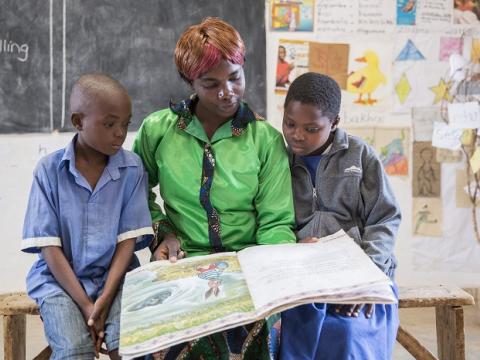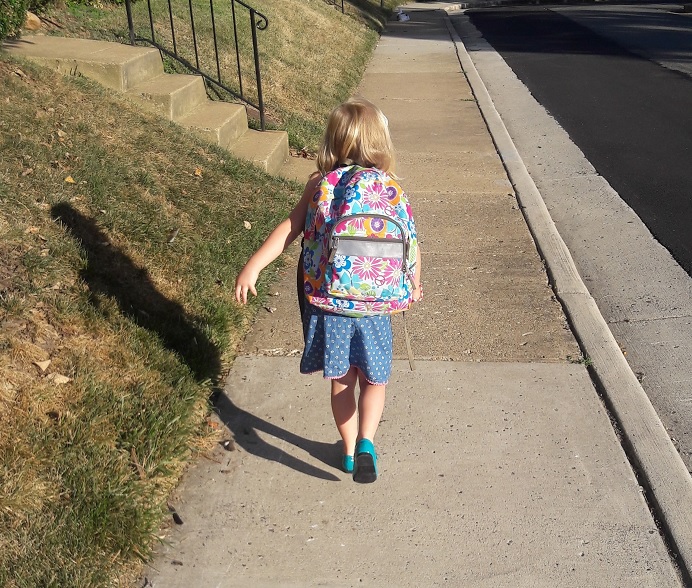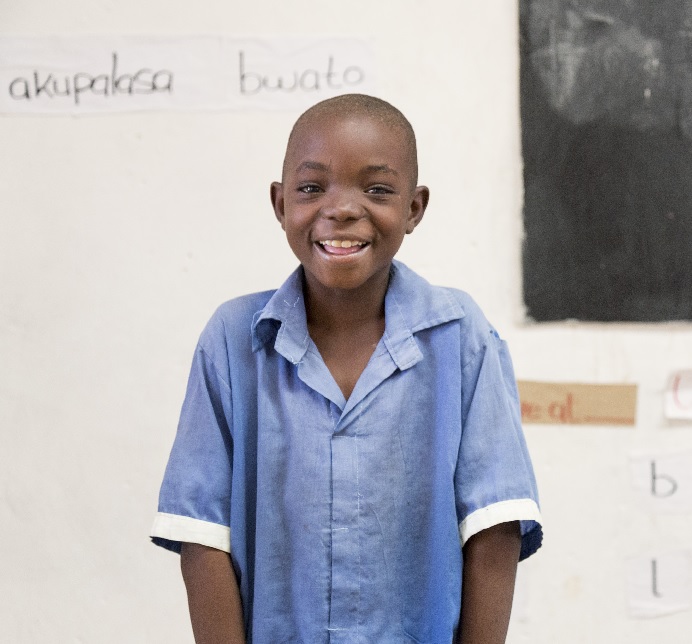Equity in education is our collective responsibility – and it’s possible

I love back-to-school time! Proud parents walk their children to their classrooms, take pictures and speak words of encouragement. Teachers welcome kids and thoughtfully plan out their lessons. Children have the opportunity to learn and make friends. I got to experience this for the first time last week when my daughter started kindergarten.
I am full of pride as a parent. As an educator, I can’t wait to find out what she learns this year. But as kids go back to school in the US, I can’t help but think of the world’s most vulnerable children, and what their first day of school was like – if it happened at all. Regardless, it is easy to assume that my daughter’s experience will be markedly different from that of millions of other children.
For example, my daughter's kindergarten class has 22 children in it and two teachers. In contrast, according to the World Bank, in Malawi in 2013, the average teacher to student ratio in primary school was 1:69. You read that right: one teacher for every 69 students! This is the norm in places like Malawi, and other countries where World Vision works. The statistics are staggering. We must not forget that these numbers represent real children, with real stories, just like my daughter.
My daughter on her first day of school. (Photo credit: Lisa Easterbrooks / World Vision)
My daughter also rides a big yellow school bus with two adults on it. She is checked off a list each day, and given a bright green sticker to put on her shirt to ensure she is safe and accounted for. In contrast, children around the world face very long and often dangerous routes to school. In Kwazulu Natal, South Africa, some young people walk as far as 10 miles per day to school.
These are examples – of quality teaching and safe transportation – which can either promote learning, or act as a barrier to it. Children around the world have the same needs as my daughter, but their schools are often lacking a safe and positive learning environment.
My daughter will have access to not only teachers and safe transportation, her school has a library, nutritional food, recreational activities, a school counselor, a school nurse and many other services that a child might need as he or she grows and develops and learns. I pay nothing for this. These services are public.
However, not all schools in the US are the same. There are many schools where children do not succeed, even within driving distance from our home. Educational equity is a challenge everywhere. World Vision is working to address equity and quality in the most vulnerable places, such as places where there aren’t enough teachers, or in conflict settings.
Mphatso, 8, is one of over 100 children in his grade 3 class in Malawi. (Photo credit: Max Greenstein / Matter Studio)
As I watched my daughter walk into her first day of school, my heart was full of joy, pride and gratefulness for the education she will receive. And yet, there is a part of my heart that aches for the children, teachers and parents I’ve met visiting classrooms around the world who don’t have the same opportunities. I want to package up all this goodness: the teachers, the facilities, the food, the school nurse, the books – and drop it into a country like Malawi.
I know that the love that people have for their children around the world is the same as the love I hold in my heart for my daughter. There is no such thing as “other people’s children.” They are all our children, and we must all do our part to ensure they receive the best possible education and opportunities in life.
It’s not easy, but we know that certain things help children learn: trained teachers, safe schools, access to learning materials and much more. We can do this. Quality education is a privilege and a right that every child has.
Related links:
- Children with disabilites must benefit from quality education
- Creating "magical" moments in education
- Literacy Boost
Lisa Easterbrooks is the Basic Education Specialist in the Education and Life Skills group at World Vision International. She has over 12 years of experience in international development with a focus on literacy, basic education and life skills programming. Lisa has a Master’s in Education from Boston University.

